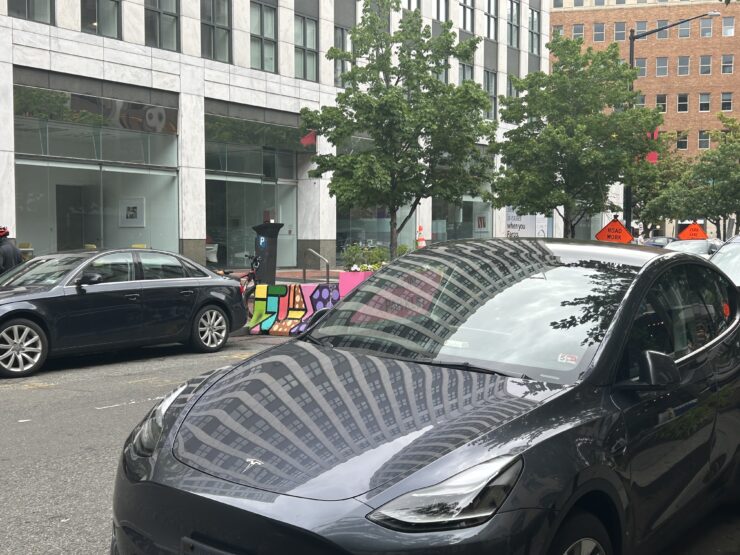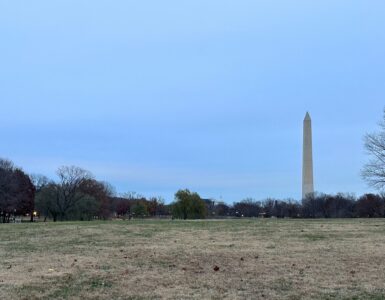The 2024 presidential election has thrust electric vehicles into the spotlight, turning the burgeoning industry into a divisive voter issue.
President Joe Biden has poured billions of federal funds into the U.S. auto sector, pushing to see half of all new car sales turn electric by 2030. Washington, D.C. joined a dozen other states in passing even higher standards, mandating in January that all vehicles must be “clean and zero-emission” by 2035.
Americans appear to have followed suit, buying a record-breaking million E.V.s last year, according to the National Automobile Dealers Association. Five years ago, according to the Bureau of Transportation, Americans bought only 207,000.
But as American E.V. ownership grows—and thousands of new E.V.s are poised to hit the market this year—former President Donald Trump has heavily criticized Biden’s policies, describing an economic “bloodbath” that would “kill” America’s auto industry. Trump has vowed, if elected, to halt Biden’s accelerated transition toward E.V.s.
Now, the District’s E.V. owners face an uncertain future, as growing electric car charging stations, manufacturing, and some tax credits may rest on the results of the November election.
Martha Hudson was among the cohort of American E.V. buyers last year, attracted in part by the up to $7,500 tax credit offered by the federal government.
“Electric vehicles have an important role in moving D.C. green,” Hudson said. “I wanted to do my part, but the tax money really made the decision for me.”
Jonathan Craig has had his E.V. since 2021. He said he’s watched ownership grow in the past few years as electric vehicles have become cheaper and charging stations more popular.
“It’s gone from spotting a few on the road to crossing my fingers there’s a charging station free in the garage,” Craig said.
The availability of charging stations was among Hudon’s sticking points when considering buying an E.V., as American ownership grows faster than the country’s infrastructure.
In 2020, America had one public charger per seven E.V.s, according to the International Energy Agency. Now, there’s one per 20 vehicles—though the Biden administration said the nation was on track to triple charging stations by 2026.
“I definitely considered all these new policies and promises when I bought my car,” Hudson said. “If all of this is turned on its head, I’m sure a lot of new buyers will be upset, me included.”
The Trump campaign has honed in on E.V.s as a key issue in critical battleground states—many of which are hubs of the auto industry. In his keynote address to the Libertarian National Convention on Saturday, an unprecedented and ultimately unsuccessful vie for the party’s endorsement, Trump said he’d “cancel” Biden’s E.V. policies if elected.
“This will terminate crooked Joe’s insane electric vehicles mandate,” Trump said. “We are going to ‘drill, baby, drill.’”
Even if elected, Trump could not unilaterally reverse Congressional policy like the 2022 Inflation Reduction Act, which provides tax credits for eligible E.V. purchases and charging station installation. He could, however, seek to undo E.V. federal goals, public infrastructure funding, and incentives outlined in Biden’s “Investing in America Agenda and Bidenomics.”
Having bought her vehicle on the promise of a boost in charging stations and a national turn toward electric, Hudson said the future of E.V. ownership feels uncertain.
“I hope it becomes cheaper and easier to drive electric,” Hudson said. “But, in the meantime, we’ll just have to wait and see.”















I read it. I’m no ecological expert. Numbers. Change. Tying the two together – the numbers say something is changing. Addressing change is capitalism at its purest. The world’s best output is guided by Margaret Mead’s words about change, small group of committed people, etc. The management axiom of picking the best people, challenging them to do something large or small, and providing modest oversight, support, access, etc., along the way makes lot more sense than a sort of dictator-like pronouncement.